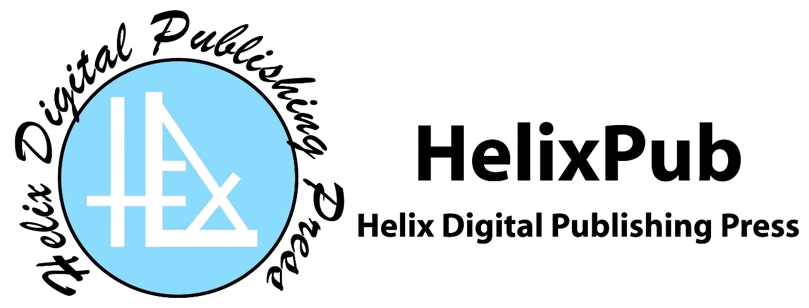Ethics and Policies
HeliX is dedicated to maintaining the highest ethical standards in scientific publishing. The journal follows internationally recognized guidelines, including those established by the Committee on Publication Ethics (COPE), to ensure the integrity, transparency, and credibility of all published research.
Author Responsibilities
Authors are expected to:
- Submit original work that has not been published or submitted elsewhere.
- Acknowledge and appropriately cite all sources, avoiding plagiarism in any form.
- Ensure that all listed authors have made significant contributions to the research and approve the final manuscript.
- Disclose any potential conflicts of interest.
- Provide ethical approval documentation for research involving human or animal subjects, as applicable.
Reviewer Responsibilities
Reviewers are expected to:
- Provide constructive, unbiased, and timely feedback on submitted manuscripts.
- Maintain confidentiality of the manuscripts and refrain from using unpublished data for personal benefit.
- Disclose any potential conflicts of interest and decline to review if impartiality cannot be guaranteed.
Editor Responsibilities
Editors are responsible for:
- Ensuring that all submitted manuscripts undergo a fair and rigorous review process.
- Making impartial decisions based solely on the scientific merit of submissions.
- Handling any ethical concerns, including allegations of misconduct, following COPE guidelines.
- Ensuring confidentiality throughout the peer review process.
Publication Ethics
- HeliX upholds a strict policy against plagiarism, data fabrication, and falsification. Manuscripts found to violate these policies will be rejected, and appropriate actions will be taken.
- Studies involving human participants or animals must comply with ethical standards such as the Declaration of Helsinki or relevant institutional guidelines.
Conflict of Interest
Authors, reviewers, and editors must disclose any financial or personal relationships that could influence their work. Conflicts of interest will be transparently handled to maintain trust and credibility.
Corrections and Retractions
- If errors are identified in published articles, the journal will issue corrections or corrigenda.
- Articles found to involve ethical breaches, such as plagiarism or data fabrication, will be retracted with a clear statement explaining the reason for retraction.
By adhering to these policies, HeliX is committed to fostering a culture of ethical scientific publishing and ensuring the credibility and reliability of the research it disseminates.
Peer Review
HeliX is committed to ensuring a thorough, fair, and unbiased review process for all submitted manuscripts. The journal follows a double-blind peer review process, meaning that the identities of both authors and reviewers remain anonymous to each other. This ensures that submissions are judged solely on their scientific merit, originality, and relevance to the journal’s scope.
Peer Review Process
- Initial Assessment:
All submitted manuscripts are first screened by the editorial team to ensure adherence to the journal’s aims and scope, as well as compliance with ethical and quality standards. Manuscripts may be returned to authors at this stage if they do not meet basic requirements. - Reviewer Selection:
Manuscripts that pass the initial screening are sent to two or more independent experts in the relevant field. Reviewers are selected based on their expertise and prior experience with the topic under consideration. - Review Criteria:
Reviewers evaluate submissions based on the following criteria:- Scientific rigor, validity, and methodology.
- Originality and contribution to the field.
- Clarity of presentation and structure.
- Relevance to the journal’s multidisciplinary scope.
- Ethical compliance, including proper use of citations and adherence to research ethics.
- Reviewer Feedback:
Reviewers provide detailed, constructive feedback and recommendations, which may include:- Accept: Suitable for publication as is or with minor revisions.
- Minor Revision: Requires minor changes before acceptance.
- Major Revision: Requires significant changes before further consideration.
- Reject: Does not meet the journal’s standards for publication.
- Editorial Decision:
The editorial team reviews all feedback from reviewers to make a final decision. The decisions may be:- Accepted.
- Accepted after revisions.
- Rejected with feedback for improvement.
- Revision Process:
Authors are expected to address all reviewer comments in a detailed revision response. Revised manuscripts may be sent back to reviewers for further evaluation. - Final Approval:
The editor-in-chief reviews the revised manuscript and final feedback from reviewers to make the ultimate publication decision.
Open Access
HeliX is a fully open-access journal, ensuring that all published articles are freely available to readers worldwide without any subscription or paywall barriers. This model promotes the dissemination of knowledge, making high-quality research accessible to scientists, educators, policymakers, and the public globally.
Key Features of Open Access in HeliX:
- Global Accessibility: Readers can access, download, and share articles at no cost.
- Creative Commons Licensing: All articles are published under appropriate open-access licenses, allowing for reuse and distribution with proper attribution to the original authors.
- Author Rights: Authors retain copyright of their work while granting HeliX the right to publish and disseminate it widely.
HeliX is committed to advancing scientific knowledge by breaking down barriers to access, fostering collaboration, and supporting the open exchange of ideas.
